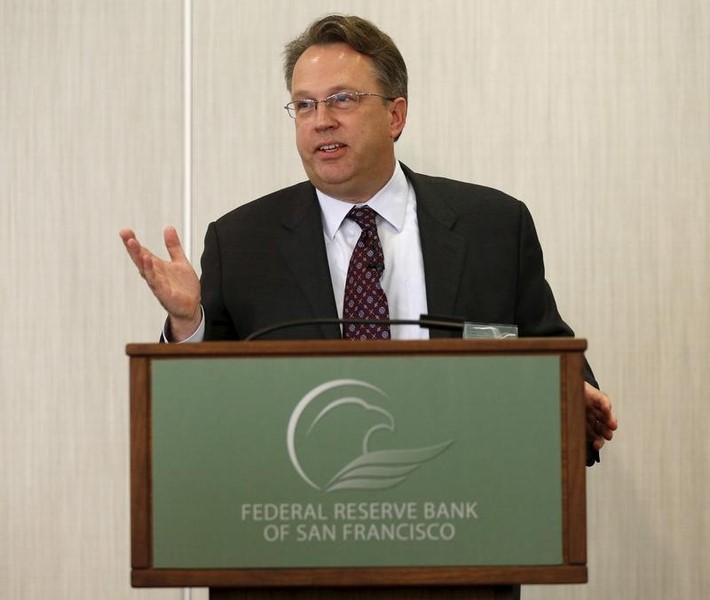Investing.com -- The U.S. dollar was consolidating at lower levels Friday morning in Europe and was on track to end the week roughly where it started, after a speech from New York Federal Reserve President John Williams revived hopes of a large interest rate cut at the Fed’s next policy meeting.
"It's better to take preventative measures than to wait for disaster to unfold," Williams (NYSE:WMB) told a central banking conference. "When you only have so much stimulus at your disposal, it pays to act quickly to lower rates at the first sign of economic distress."
The comment revived hopes that the Fed will cut its Fed funds rate by 50 basis points – rather than the more modest 25 basis point consensus view – at the Federal Open Market Committee meeting on July 30-31. Speeches later by the Fed’s Eric Rosengren and James Bullard will give further clues as to whether Williams’s is the majority view.
The comments knocked the dollar index, which tracks the greenback against a basket of developed-market currencies, down by around half a percent late on Thursday, but it recovered overnight to trade at 96.537 by 3:05 AM ET (0705 GMT).
The prospect of easier U.S. monetary policy has given emerging market central banks more confidence to cut their own interest rates without undermining their currencies. Indonesia, South Korea and South Africa all cut their key rates by 25 basis points on Thursday, but the rupiah hit a new 15-month high against the dollar, while the rand hit a seven-month high.
In Europe, the euro and sterling also both profited from Williams’ comments, the British pound rising above $1.25 again after touching a two-year low below $1.24 earlier this week. The euro rose as high as $1.1282, before retreating to $1.1263, with lower-than-expected German producer prices in June reminding traders of action from the European Central Bank at its governing council meeting next week.
Bloomberg reported on Thursday that the ECB had begun a review of how it defines its inflation target, something that could ultimately lead to its monetary policy staying looser for longer.
